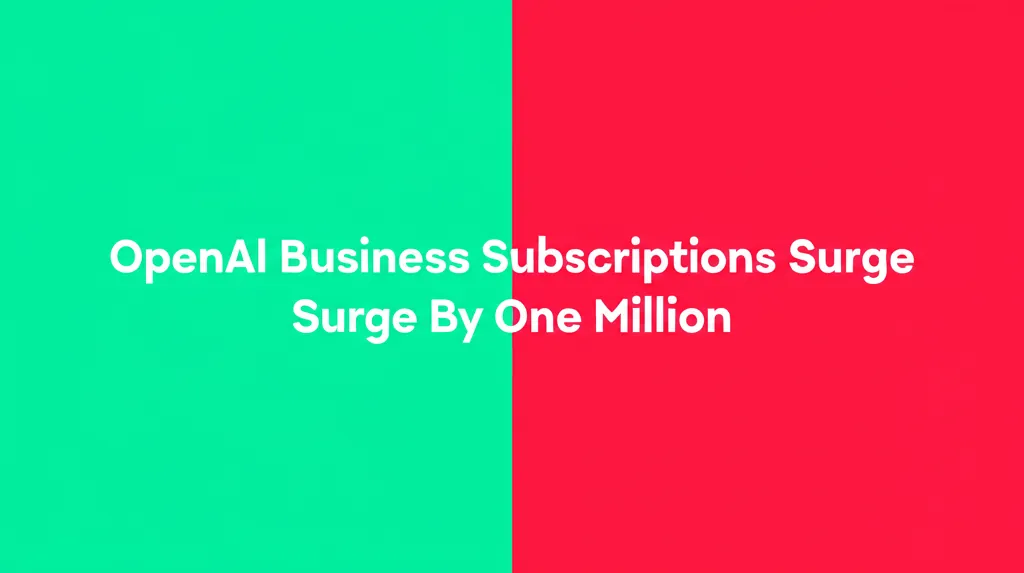Developer Offer
Try ImaginePro API with 50 Free Credits
Build and ship AI-powered visuals with Midjourney, Flux, and more — free credits refresh every month.
ChatGPT Prompts For Powerful Career Advancement
This article is published by AllBusiness.com, a partner of TIME.
Navigating your career path can be one of the most rewarding yet challenging aspects of life. From choosing a profession that aligns with your passions to making tough decisions about career transitions, the journey is full of pivotal moments that require thoughtful planning and execution. While mentors, colleagues, and self-reflection play vital roles in shaping your career, leveraging tools like ChatGPT can provide valuable, personalized guidance when you need it most.
ChatGPT, with its vast knowledge base and conversational capabilities, can serve as a versatile career advisor. Whether you’re drafting a compelling resume, preparing for a job interview, or seeking strategies to negotiate a salary, the right prompts can unlock insights tailored to your unique situation. This AI-powered assistant isn’t here to replace traditional advice but to complement it, providing a structured approach to solving common career challenges.
What sets ChatGPT apart is its ability to adapt to a variety of needs. It can help you discover growth opportunities, manage workplace conflicts, or even suggest ways to transition into a completely new field. By asking the right questions, you can tap into a wealth of actionable advice that’s both practical and empowering.
This article, prepared with research assistance from ChatGPT, outlines seven specific ChatGPT prompts designed to address various aspects of career development. Alongside each prompt, you’ll find additional suggestions to expand the scope of your career planning, helping you tackle challenges that come your way. You will of course need to tailor some of the prompts to your particular situation.
1 Crafting an Effective Resume
Sample Prompt: “Can you help me create a professional resume tailored to a marketing manager position? Include key achievements, technical skills, and action-oriented language. Also, provide tips on formatting to ensure it stands out to recruiters.”
Additional Potential Prompts:
- How do I tailor my resume for a job in a different industry?
- What are the best keywords to include in a resume for a tech-related role?
- How can I condense a long resume into a single page without losing key information?
- Can you suggest ways to highlight leadership experience on my resume?
- What are alternative ways to format my resume?
- What are some examples of strong action verbs to use in resumes?
2 Preparing for Job Interviews
Sample Prompt: “I have an interview for a project manager position next week. Can you suggest common questions I might be asked and provide example answers? Additionally, include tips on how to handle behavioral interview questions.”
Additional Potential Prompts:
- What are the best ways to prepare for a panel interview?
- How do I handle tricky questions about gaps in my employment history?
- Can you suggest a good response to the question, ‘What is your greatest weakness?’
- How do I prepare for a technical interview in software development?
- What are some strategies for building rapport with interviewers?
- How do I follow up after an interview to make a strong impression?
3 Negotiating Salary Offers
Sample Prompt: “I received a job offer, but the salary is lower than I expected. Can you help me craft a professional response to negotiate a higher salary? Include tips on how to present my case with evidence of my value.”
Additional Potential Prompts:
- How do I research industry-standard salaries for my role?
- What’s the best way to negotiate benefits in addition to salary?
- Can you provide a script for asking for a salary review at my current job?
- How do I handle situations where the employer says the budget is fixed?
- What are some effective ways to negotiate a signing bonus?
- How do I approach salary discussions when transitioning to a new industry?
4 Exploring Career Transitions
Sample Prompt: “I’m considering transitioning from a teaching career to corporate training. Can you suggest steps to make this change, including skills I need to highlight and how to position my experience for this new field?”
Additional Potential Prompts:
- What’s the best way to identify transferable skills for a career change?
- Can you help me draft a LinkedIn summary that reflects my career pivot?
- How do I overcome fears or uncertainties about switching industries?
- What are some short-term certifications I can pursue to facilitate a career change?
- How do I explain my career change during job interviews?
- Can you suggest networking strategies to connect with professionals in my target field?
5 Building Leadership Skills
Sample Prompt: “I’ve recently been promoted to a team leader position. Can you provide strategies for effective leadership, including managing team dynamics and setting clear goals? Also, suggest ways to address challenges like delegation and performance feedback.”
Additional Potential Prompts:
- How do I build trust and respect as a new leader?
- What’s the best way to handle conflicts within my team?
- Can you suggest methods for motivating underperforming team members?
- How do I balance being approachable with maintaining authority?
- What are some strategies for improving communication with my team?
- How can I develop a leadership style that aligns with my strengths?
6 Networking Effectively
Sample Prompt: “I want to expand my professional network in the tech industry in New York. Can you suggest strategies for building meaningful connections, both online and in-person? Include tips on attending networking events and leveraging platforms like LinkedIn.”
Additional Potential Prompts:
- How do I write a compelling LinkedIn connection request?
- What are some conversation starters for networking events?
- How do I maintain relationships with professional contacts over time?
- Can you suggest ways to use LinkedIn groups to connect with industry peers?
- How do I approach someone I admire for mentorship opportunities?
- What’s the best way to follow up after meeting someone at a networking event?
7 Setting Long Term Career Goals
Sample Prompt: “I want to set long-term career goals for the next 10 years. Can you help me outline a strategy for achieving these goals, including setting milestones, identifying resources, and staying motivated? Also, include advice on how to adjust goals as circumstances change.”
Additional Potential Prompts:
- How do I break down a 10-year career goal into actionable steps?
- Can you suggest methods for tracking progress toward my goals?
- How do I align my career goals with my personal values?
- What’s the best way to reassess career goals after a major life change?
- Can you recommend tools or apps for career planning?
- How do I handle setbacks while pursuing long-term goals?
Conclusion on ChatGPT Career Advice
Career development is a lifelong journey filled with opportunities, challenges, and the need for continuous growth. With tools like ChatGPT, individuals can access tailored advice, practical strategies, and actionable insights to navigate the complexities of their professional lives. By using thoughtfully crafted prompts, you can unlock a wealth of information to help you tackle challenges, seize opportunities, and build a fulfilling career.
Whether you’re drafting a standout resume, preparing for a big interview, or setting long-term goals, ChatGPT can serve as a valuable companion in your career journey. By leveraging the power of AI, you’re not only saving time but also empowering yourself with the tools and confidence needed to succeed.
Related Articles:
About the Authors:
Richard D. Harroch is a Senior Advisor to CEOs, management teams, and Boards of Directors. He is an expert on M&A, venture capital, startups, and business contracts. He was the Managing Director and Global Head of M&A at VantagePoint Capital Partners, a venture capital fund in the San Francisco area. His focus is on internet, digital media, AI and technology companies. He was the founder of several Internet companies. His articles have appeared online in Forbes, Fortune, MSN, Yahoo, Fox Business and AllBusiness.com. Richard is the author of several books on startups and entrepreneurship as well as the co-author of Poker for Dummies and a Wall Street Journal-bestselling book on small business. He is the co-author of a 1,500-page book published by Bloomberg on mergers and acquisitions of privately held companies. He was also a corporate and M&A partner at the international law firm of Orrick, Herrington & Sutcliffe. He has been involved in over 200 M&A transactions and 250 startup financings. He can be reached through LinkedIn.
Dominique Harroch is the Chief of Staff at AllBusiness.com. She has acted as a Chief of Staff or Operations Leader for multiple companies where she leveraged her extensive experience in operations management, strategic planning, and team leadership to drive organizational success. With a background that spans over two decades in operations leadership, event planning at her own start-up and marketing at various financial and retail companies. Dominique is known for her ability to optimize processes, manage complex projects and lead high-performing teams. She holds a BA in English and Psychology from U.C. Berkeley and an MBA from the University of San Francisco. She can be reached via LinkedIn.
Copyright (c) by Richard D. Harroch. All Rights Reserved.
Compare Plans & Pricing
Find the plan that matches your workload and unlock full access to ImaginePro.
| Plan | Price | Highlights |
|---|---|---|
| Standard | $8 / month |
|
| Premium | $20 / month |
|
Need custom terms? Talk to us to tailor credits, rate limits, or deployment options.
View All Pricing Details

